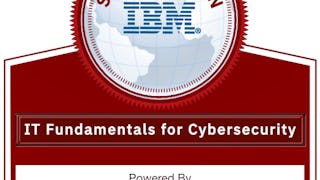![[Featured Image] A systems auditor having a discussion with a colleague in a professional workspace while seated on a sofa.](https://images.ctfassets.net/wp1lcwdav1p1/7Fwxu49NigJCTxVXIBMlgI/795cd62af4df6723f043d967eda55ac9/GettyImages-1319415420.jpg?w=330&h=216&q=60&fit=fill&f=faces&fm=jpg&fl=progressive)
How To Become A Certified Information Systems Auditor (CISA)
Professionals with a CISA keep a business’s IT infrastructure secure. Learn more about certified information systems auditor jobs and how to become one to determine if it’s the right path for you.
March 3, 2025
Article

![[Featured Image] A man at home on his computer is excited because he just finished creating his IT project manager resume and submitted it to several companies.](https://images.ctfassets.net/wp1lcwdav1p1/7wi9vNpRH1gzb64dMsuTRD/d2244e171eddf811ec8ba62877d07010/GettyImages-1496369597.jpg?w=330&h=216&q=60&fit=fill&f=faces&fm=jpg&fl=progressive)
![[Featured Image] A man who receives a technical consultant salary shows his client IT business analytics.](https://images.ctfassets.net/wp1lcwdav1p1/2et8bECEghekKSjO9GxdhN/773d0694e04a14d6d0052f3f99c947ec/GettyImages-1200930315.jpg?w=330&h=216&q=60&fit=fill&f=faces&fm=jpg&fl=progressive)
![[Featured Image] A person sits with their phone and laptop looking for the best-paying technology jobs available.](https://images.ctfassets.net/wp1lcwdav1p1/66rb3s4FvfDYDTvsFeL86l/6df636ce1d5c769cd0c2fa27daec1489/GettyImages-1140447702.jpeg?w=330&h=216&q=60&fit=fill&f=faces&fm=jpg&fl=progressive)
![[Featured Image] Two people examine data represented in graphs and charts on large screens in an office.](https://images.ctfassets.net/wp1lcwdav1p1/3AmsNeMmdIUytvhtu8ePPX/92e66e4f3ec1ed931a4d4ecaec27b029/GettyImages-551986071.jpg?w=330&h=216&q=60&fit=fill&f=faces&fm=jpg&fl=progressive)
![[Featured image] Two members of an IT management team discuss technology systems.](https://images.ctfassets.net/wp1lcwdav1p1/qnb5ru6YWJeSN2Xm7AJuD/573029b9c87cd867be08447eb9ba6060/iStock-542298764_super.jpg?w=330&h=216&q=60&fit=fill&f=faces&fm=jpg&fl=progressive)



![[Featured Image] A person wearing a yellow jacket sits at their desk in front of a desktop computer.](https://images.ctfassets.net/wp1lcwdav1p1/5VGI4Dw2uZObNTGSNYdm9T/2dbe80dbd3f4a3280b2fa79cc5c7eb8e/GettyImages-980654204_IT_project_management__2_.jpg?w=330&h=216&q=60&fit=fill&f=faces&fm=jpg&fl=progressive)
![[Featured Image] A tech professional in an office searches the web for the answer to, “What is itil?”](https://images.ctfassets.net/wp1lcwdav1p1/3TGE78Eda0Ieef4xVG3WHL/122f9cb6a903bead66eef880a4a2e11a/GettyImages-1336440663.jpg?w=330&h=216&q=60&fit=fill&f=faces&fm=jpg&fl=progressive)
![[Featured Image] A service desk analyst sits at a workspace, working on a computer.](https://images.ctfassets.net/wp1lcwdav1p1/1vvRt8RzWxcIdBJz8rtbd0/dc12be0f1a1bdf269e3d25c5df28cf1c/GettyImages-1650859285.jpg?w=330&h=216&q=60&fit=fill&f=faces&fm=jpg&fl=progressive)
![[Featured Image] A technical project manager walks a team through a project plan on a whiteboard.](https://images.ctfassets.net/wp1lcwdav1p1/6EzNdVPkytgFcv8BOPTD4F/a4c150a928a48f98ac702b3974241c2f/GettyImages-829421280.jpg?w=330&h=216&q=60&fit=fill&f=faces&fm=jpg&fl=progressive)
![[Featured image] A cybersecurity engineer in a blue long-sleeve shirt stands in an open office space holding their tablet.](https://images.ctfassets.net/wp1lcwdav1p1/4piLyZVBzLHSiG7JKtHIq1/e12fe3f735986c2aa23bf2e7b0e5499f/cybersecurity_career_path.png?w=330&h=216&q=60&fit=fill&f=faces&fm=jpg&fl=progressive)
![[Featured Image] Woman starts a job in an IT role at a new company](https://images.ctfassets.net/wp1lcwdav1p1/4JWDGXWls9qUiTivqc0Ksl/e8b958be00f9e7cdbad4c821dfe54387/iStock-1176251115.jpg?w=330&h=216&q=60&fit=fill&f=faces&fm=jpg&fl=progressive)

![[Featured image] Network administrator works on a laptop in an open-plan office](https://images.ctfassets.net/wp1lcwdav1p1/5kpKJ1y7C4POgZv2BL4DZT/9f51821b9fab6c0622330797e19ee788/iStock-542298764_super.jpg?w=330&h=216&q=60&fit=fill&f=faces&fm=jpg&fl=progressive)
![[Featured image] A systems administrator in a gray shirt holds a tablet while standing between rows of black electrical equipment.](https://images.ctfassets.net/wp1lcwdav1p1/4j1kvXZ0NQ82wrIAj99Wm8/d4d96da50d84a9e0f1890cca4019b2f5/GettyImages-580501705.jpg?w=330&h=216&q=60&fit=fill&f=faces&fm=jpg&fl=progressive)
